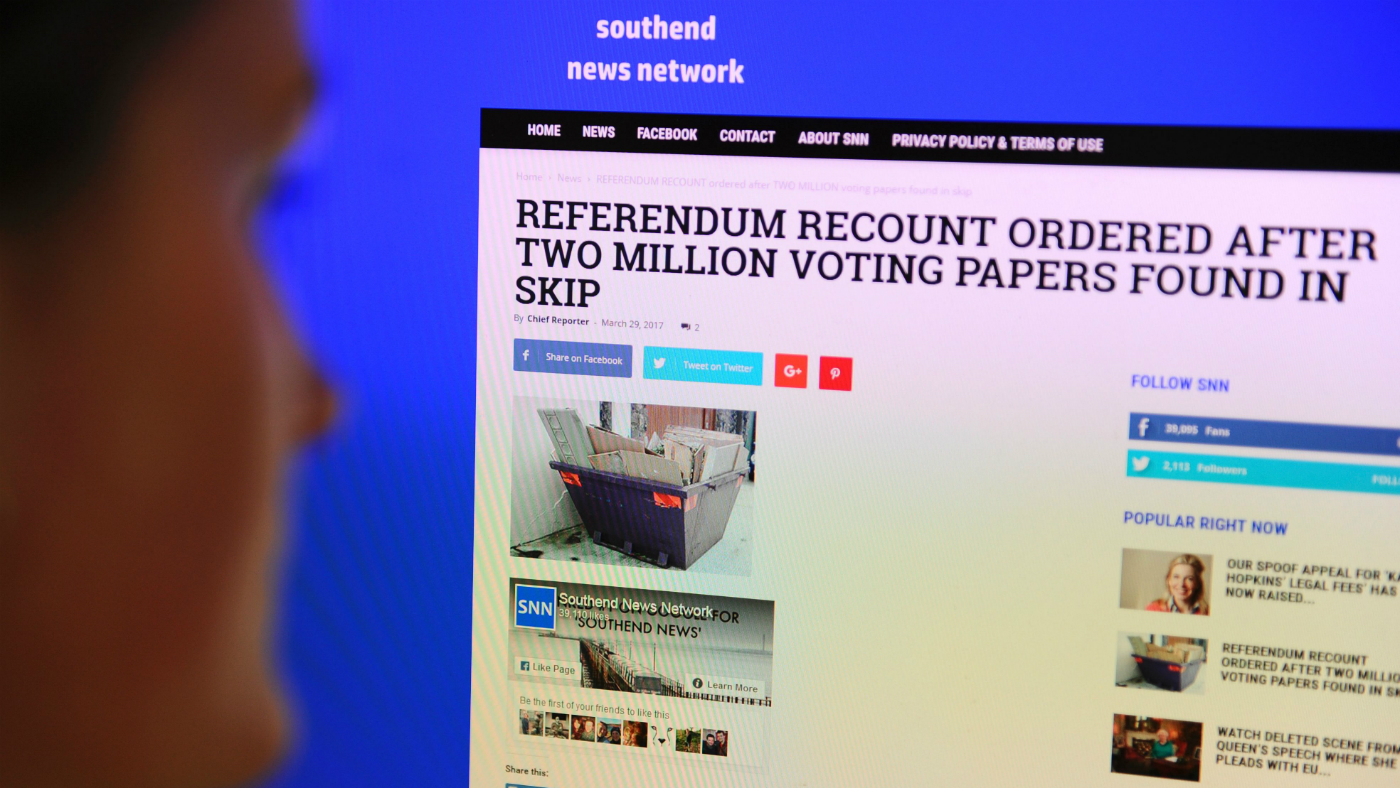Could fake news impact the general election?
Local papers sign up to new campaign highlighting the 'checks and balances' involved in reporting the news

A free daily email with the biggest news stories of the day – and the best features from TheWeek.com
You are now subscribed
Your newsletter sign-up was successful
Politicians and media organisations are attempting to tackle the growing phenomenon of fake news in the run-up to the general election.
Local newspapers have signed up to the Fighting Fake News campaign, which launches today, the Press Gazette reports. It will see papers running editorials highlighting the "checks and balances involved in reporting local news".
Backed by the News Media Association, which represents UK news publishers, Fighting Fake News wants readers to recognise the "investment required to produce local journalism" versus fake news, which profits from "opaque programmatic advertising".
The Week
Escape your echo chamber. Get the facts behind the news, plus analysis from multiple perspectives.

Sign up for The Week's Free Newsletters
From our morning news briefing to a weekly Good News Newsletter, get the best of The Week delivered directly to your inbox.
From our morning news briefing to a weekly Good News Newsletter, get the best of The Week delivered directly to your inbox.
In January, the culture, media and sport committee launched an inquiry into fake news, a month after Labour said it was conducting an inquiry of its own into the phenomenon, the Press Gazette says.
The committee will publish its results later in the year, while Labour's findings have been postponed to allow the party to focus on the general election.
Fake news was widely blamed for spreading misinformation during the US presidential campaign last year. Since then, pressure has mounted on major sites such as Facebook and Google to crack down on false stories.
Facebook, which called the problem a "global priority" and an "evolving challenge", the BBC says, has been criticised for not acting quickly enough to combat false stories.
A free daily email with the biggest news stories of the day – and the best features from TheWeek.com
Conservative Damian Collins last week told The Guardian that fake news could threaten "the integrity of democracy" because of the large numbers of people who rely on the social network site for news.
"They could be voting based on lies," he said. "It can’t just be users referring the validity of the story. They [Facebook] have to make a judgment about whether a story is fake or not."
In Germany, France and the Netherlands, Facebook is working with established media companies to ensure problematic stories are flagged up on newsfeeds. However, adds The Guardian, such efforts are further behind in the UK.
In France, which is preparing to elect its next president, Facebook has suspended 30,000 suspected automated accounts, many of which were spreading political misinformation.
Meanwhile, researchers at Oxford University last month said up to a quarter of political links posted to Twitter in France were based on false information, reported The Independent.
-
 The environmental cost of GLP-1s
The environmental cost of GLP-1sThe explainer Producing the drugs is a dirty process
-
 Greenland’s capital becomes ground zero for the country’s diplomatic straits
Greenland’s capital becomes ground zero for the country’s diplomatic straitsIN THE SPOTLIGHT A flurry of new consular activity in Nuuk shows how important Greenland has become to Europeans’ anxiety about American imperialism
-
 ‘This is something that happens all too often’
‘This is something that happens all too often’Instant Opinion Opinion, comment and editorials of the day